Kozelsk, Russia, January 25, 2018
The funeral and burial of the newly-departed Archimandrite Benedict (Penkov), who served as the abbot of Optina Monastery for 27 years, was celebrated at his beloved monastery yesterday. Fr. Benedict reposed early in the morning on Monday.
The night before, the Chairman of the Synodal Department for Monasteries and Monasticism Archbishop Theognost of Sergiev Posad served a litiya for the repose of Fr. Benedict’s soul, reports the department’s website.
Metropolitan Evlogy of Vladimir and Suzdal, who served as abbot of the newly-revived Optina Monastery before Fr. Benedict in the late 1980s, also came to pay his respects and bid farewell to his successor.
On the day of the funeral, the Divine Liturgy was celebrated by Metropolitan Barsanuphius of St. Petersburg and Ladoga, the Chancellor of the Moscow Patriarchate. His Eminence was assisted by Metropolitan Kliment of Kaluga and Borovsk, Abp. Theognost of Sergiev-Posad, Bishop Leonid of Urzhum and Omutninsk, Bishop Guriy of Arsenyev and Dalnegorsk, Abbot Archimandrite Alexei (Polikarpov) of Moscow’s Danilovsky Monastery, Archimandrite Melchizedek (Artyukhin) of the Optina Podvoriye in Moscow, former Optina monk and current spiritual father to the patriarch Schema-Archimandrite Iliy (Nozdrin), and the ordained brothers of the monastery.
Following the Divine Liturgy, Met. Barsanuphius read out a message from His Holiness Patriarch Kirill of Moscow and All Russia to the brethren of Optina Monastery and all those present for Fr. Benedict’s funeral.
“The Lord Almighty, in Whose authority rests the times and seasons, has called Archimandrite Benedict to Himself, the abbot of one of the most famous and glorious monasteries of our Church,” His Holiness writes.
“The whole life of the deceased was dedicated to the service of God and man… Laboring in the vineyard of Christ, he diligently and zealously fulfilled the obedience entrusted to him by the hierarchs, striving to be a workman that needeth not to be ashamed, rightly dividing the word of truth (2 Tim. 2:15),” the primate continued.
Pat. Kirill also remembered with gratitude “the labors of the reposed, who always cared for the monastery entrusted to him, did much for the restoration of the monastery’s former grandeur, and gave attention to the preservation of the continuity of the monastic traditions, enlightenment, and spiritual-moral education of our contemporaries.”
A homily was also given during the funeral by Optina brother Igumen Philip (Pertsev), which began by recounting how Fr. Bendict, then a monk of the Holy Trinity-St. Sergius Lavra, was appointed to the abbacy of Optina despite his poor health at the time, and how much work he did to rebuild the monastery that suffered greatly under the communist regime. He also lauded his great care for all that came to him:
He took upon himself not only the burden of running this huge monastery, but was a true father. He shared by his pain of heart not only the sorrow of the brethren and his spiritual children, but even of those he just happened to be speaking with… This man had an indefatigable spirit, bubbling over with internal energy…. He was a true zealot. His care for man came from his great love of his Creator… He helped many come to true faith and to establish them in sincere service to God.
Afterwards, the burial for a monastic was served for Archimandrite Benedict. The prayer of absolution was read out by Met. Barsanuphius, and the gramota of absolution was placed in the deceased’s hands by Fr. Iliy (Nozdrin).
Fr. Benedict’s coffin was then carried in procession around the monastery’s Kazan Church to the doleful tolling of the bells. The rite of burial itself began after sprinkling his grave with holy water and the farewell to the newly-departed abbot.
Archimandrite Benedict was accompanied on his final path by the brothers of the monastery, former Optina monks now living in other monasteries, numerous clergy and abbots of other monasteries of the Russian Orthodox Church, pilgrims, and his spiritual children and relatives.
Fr. Benedict was buried behind the altar of the Kazan Church.

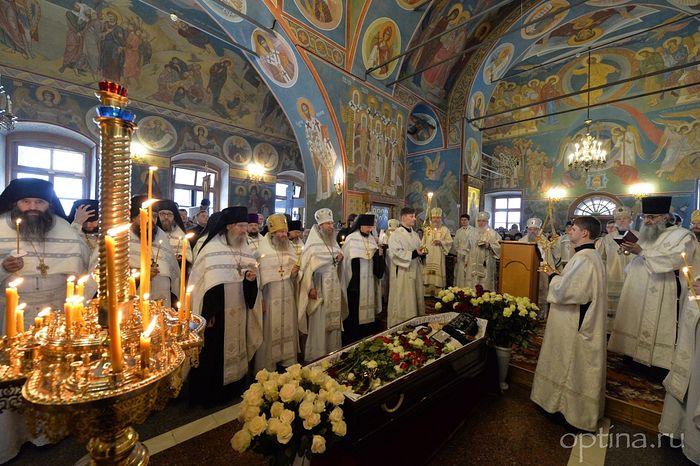
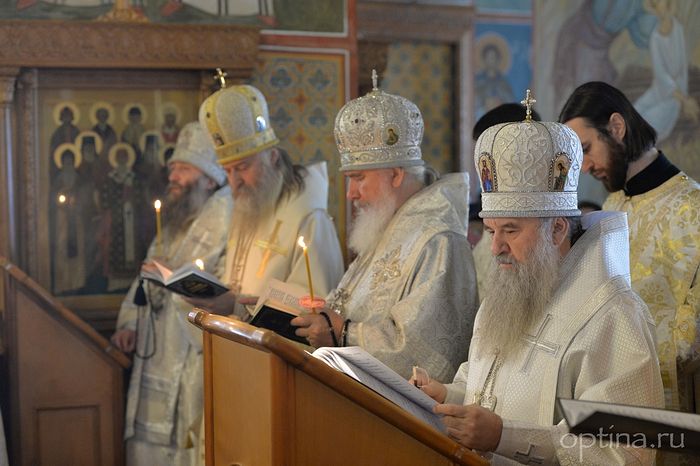
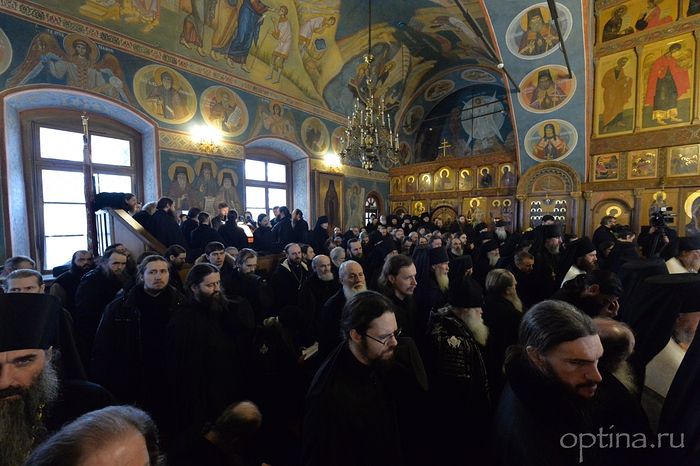
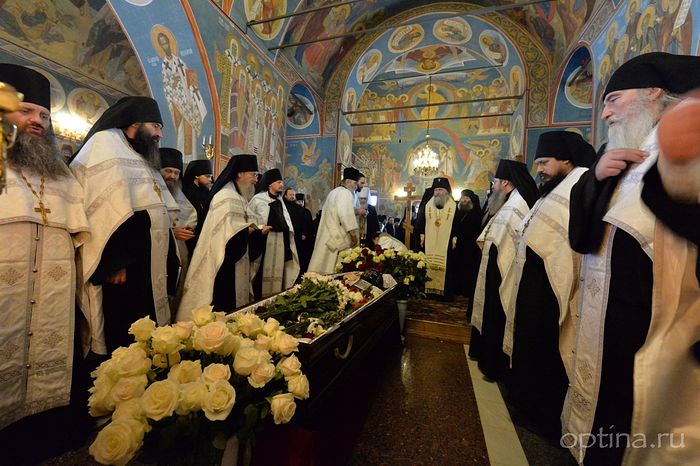
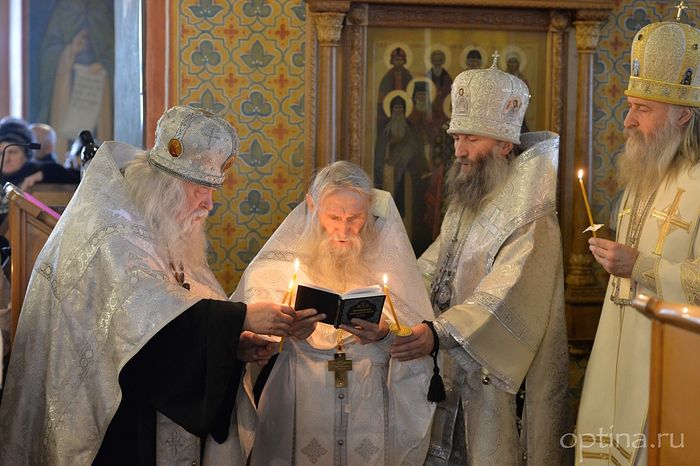
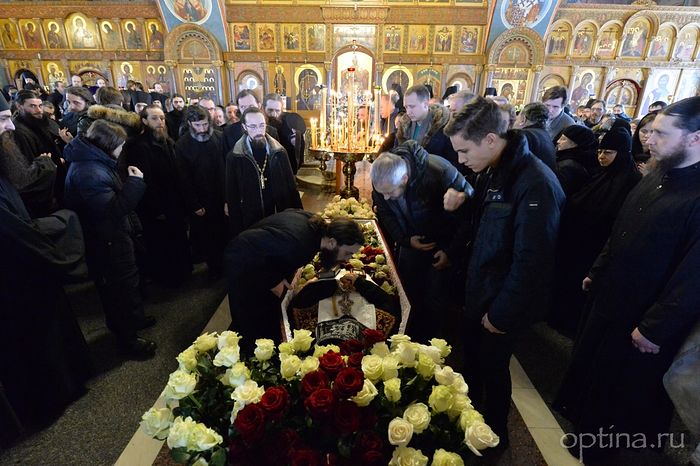
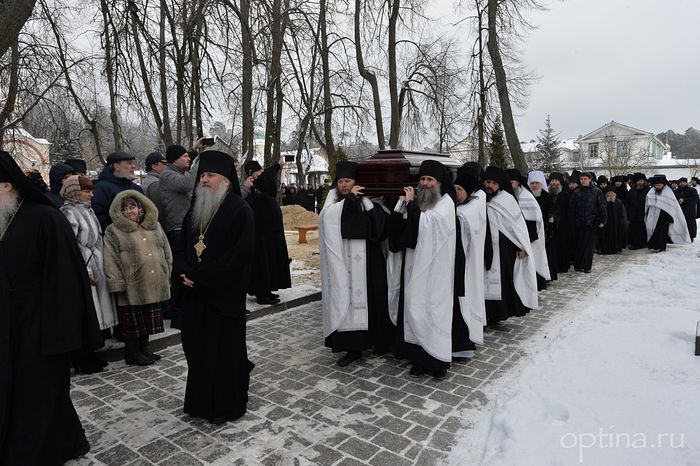
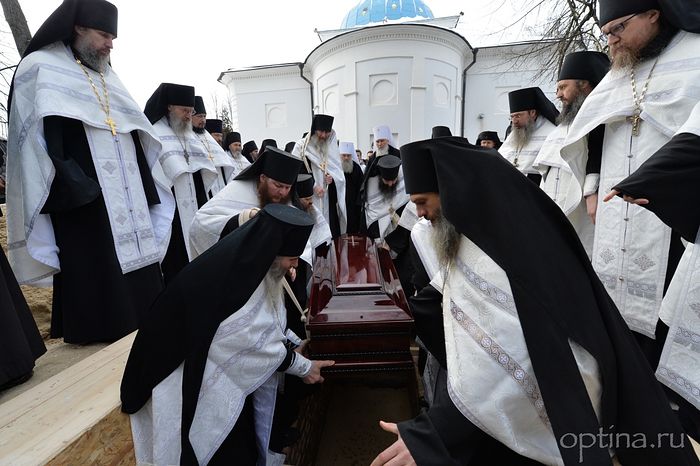
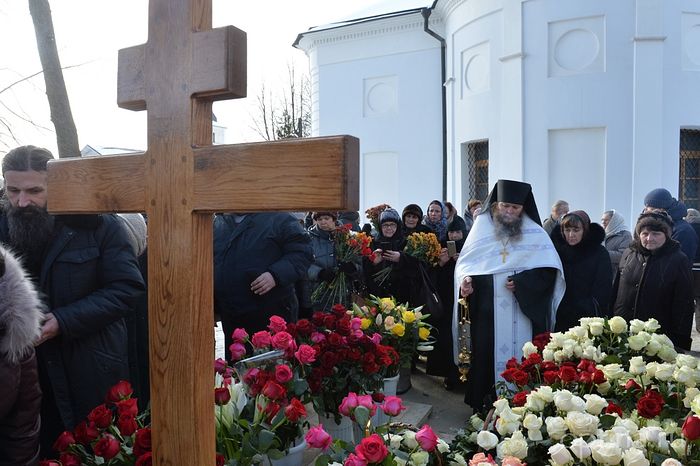
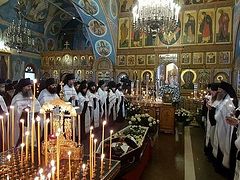
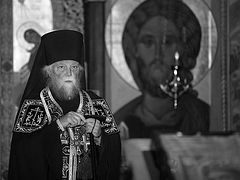
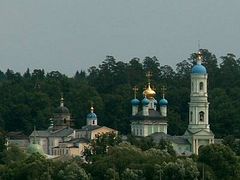
Moreover, given Christ's defeat of death, a funeral need not be solely a mournful event, but for those who were righteous, it is indeed a celebration.